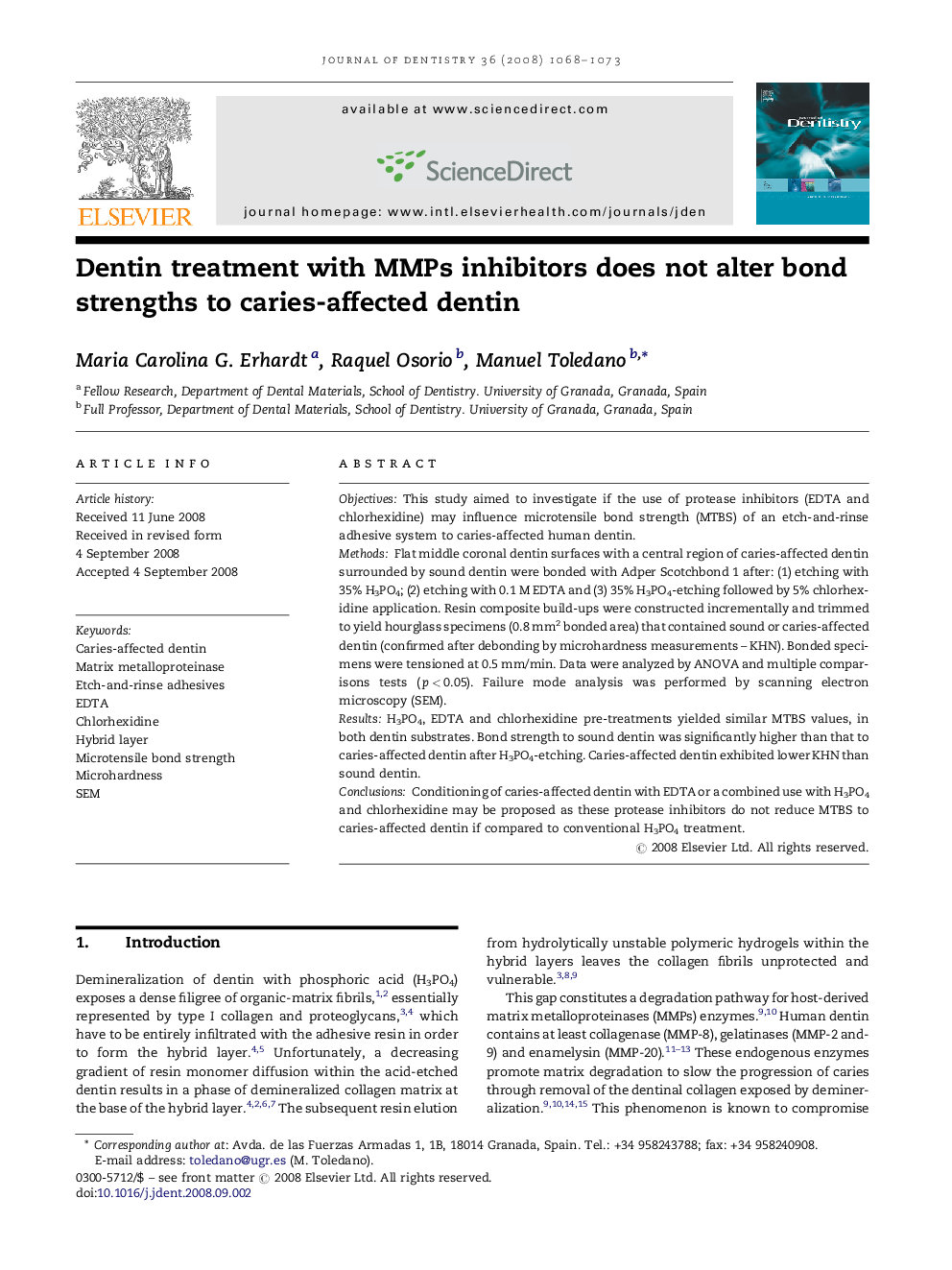| Article ID | Journal | Published Year | Pages | File Type |
|---|---|---|---|---|
| 3146388 | Journal of Dentistry | 2008 | 6 Pages |
ObjectivesThis study aimed to investigate if the use of protease inhibitors (EDTA and chlorhexidine) may influence microtensile bond strength (MTBS) of an etch-and-rinse adhesive system to caries-affected human dentin.MethodsFlat middle coronal dentin surfaces with a central region of caries-affected dentin surrounded by sound dentin were bonded with Adper Scotchbond 1 after: (1) etching with 35% H3PO4; (2) etching with 0.1 M EDTA and (3) 35% H3PO4-etching followed by 5% chlorhexidine application. Resin composite build-ups were constructed incrementally and trimmed to yield hourglass specimens (0.8 mm2 bonded area) that contained sound or caries-affected dentin (confirmed after debonding by microhardness measurements – KHN). Bonded specimens were tensioned at 0.5 mm/min. Data were analyzed by ANOVA and multiple comparisons tests (p < 0.05). Failure mode analysis was performed by scanning electron microscopy (SEM).ResultsH3PO4, EDTA and chlorhexidine pre-treatments yielded similar MTBS values, in both dentin substrates. Bond strength to sound dentin was significantly higher than that to caries-affected dentin after H3PO4-etching. Caries-affected dentin exhibited lower KHN than sound dentin.ConclusionsConditioning of caries-affected dentin with EDTA or a combined use with H3PO4 and chlorhexidine may be proposed as these protease inhibitors do not reduce MTBS to caries-affected dentin if compared to conventional H3PO4 treatment.
